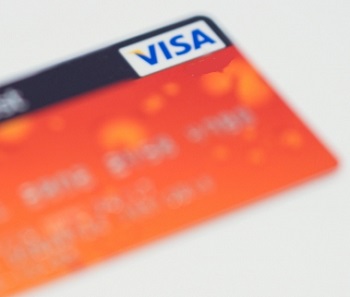Visa Checkout service has been improved to highlight the convenience of mobile commerce
Visa wants to make the mobile commerce process faster and is working to improve its Visa Checkout service. Visa Checkout was first introduced in 2014 as a way for Visa to compete with PayPal and other companies. The service allows merchants to embed interactive buttons on their sites and mobile applications, allowing consumers to make payments without having to navigate away from these sites or apps. The service had succeeded in generating strong support among consumers, but Visa is keen to make the service faster in order to highlight the convenient nature of mobile payments.
Payments made through Visa Checkout will now be faster
When Visa Checkout was first launched, consumers would have to input a username and password in order to complete a transaction. Now, however, the service has been updated to require only a password. Customers using the service now see a picture of a card where the Visa Checkout button used to be. Swiping right on the card on a mobile device asks users to input a password and this makes the mobile payments process much quicker.
Access to Visa Checkout is expanding to more merchants interested in connecting with mobile shoppers
 Visa is also expanding access to its Visa Checkout service. When first launched, Visa Checkout was only available to merchants selling digital goods and services. Some merchants were able to use the service if they delivered goods to physical stores for later pickup. Now, Visa Checkout can be used by merchants that ship products directly to customers over the next few months. Visa expects that this will be a big hit with mobile shoppers, who are already convinced of the convenience of mobile commerce.
Visa is also expanding access to its Visa Checkout service. When first launched, Visa Checkout was only available to merchants selling digital goods and services. Some merchants were able to use the service if they delivered goods to physical stores for later pickup. Now, Visa Checkout can be used by merchants that ship products directly to customers over the next few months. Visa expects that this will be a big hit with mobile shoppers, who are already convinced of the convenience of mobile commerce.
Visa is making mobile commerce more secure and convenient
Convenience is one of the most attractive aspects of the mobile payments field. Many consumers have opted to use their smartphones to shop for and purchase products due to this convenience. Visa has also succeeded in making the mobile commerce space safer for consumers, which has further encouraged their participation in this sector.

 Security is the biggest barrier preventing consumers from using mobile payment services. According to a report from eMarketer, 57% of Internet users in the United States cited security concerns as the main reason they did not use mobile wallets. Another 62% of smartphone owners in the country said that they do not plan to use mobile wallets because of worries regarding the security of their information.
Security is the biggest barrier preventing consumers from using mobile payment services. According to a report from eMarketer, 57% of Internet users in the United States cited security concerns as the main reason they did not use mobile wallets. Another 62% of smartphone owners in the country said that they do not plan to use mobile wallets because of worries regarding the security of their information.